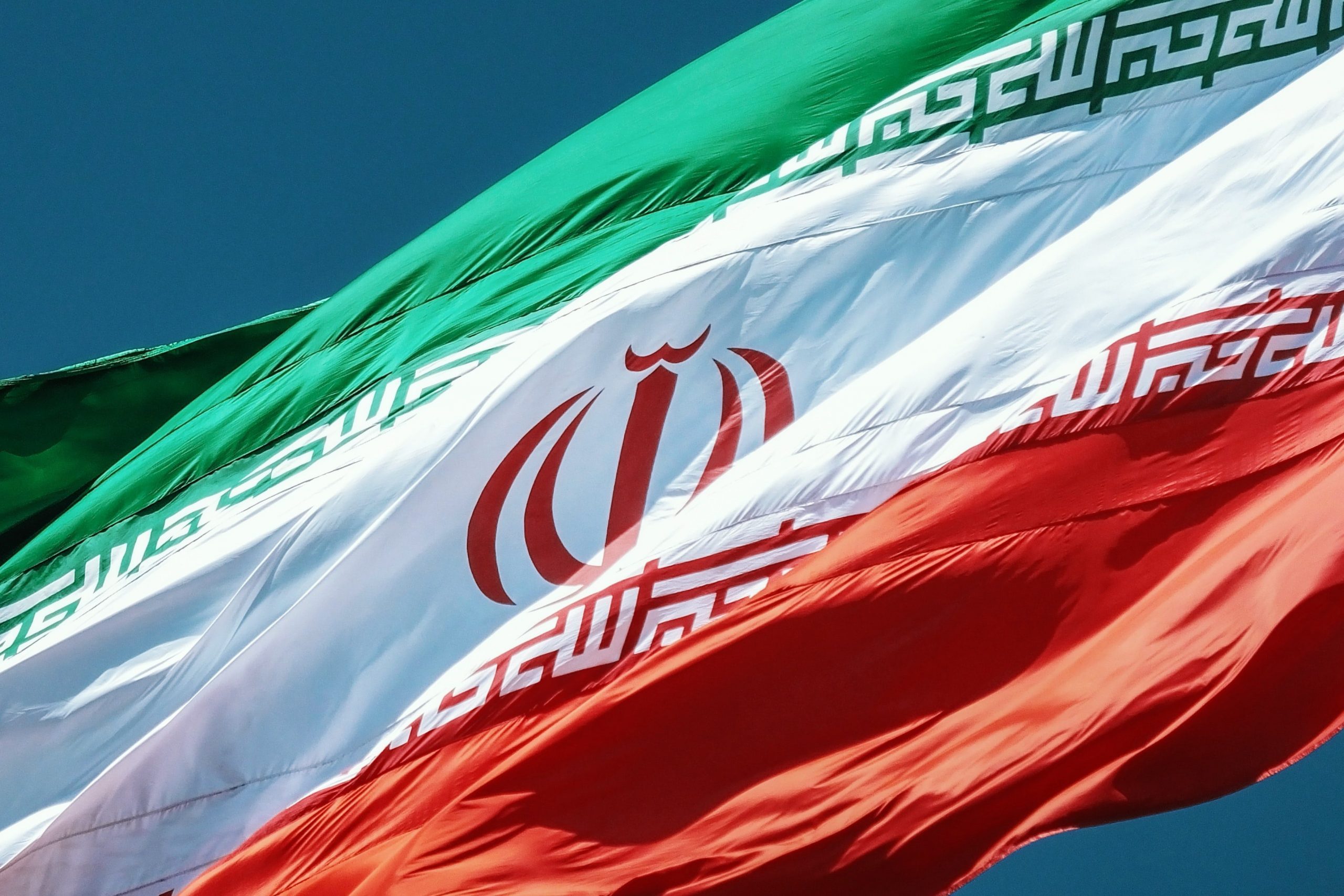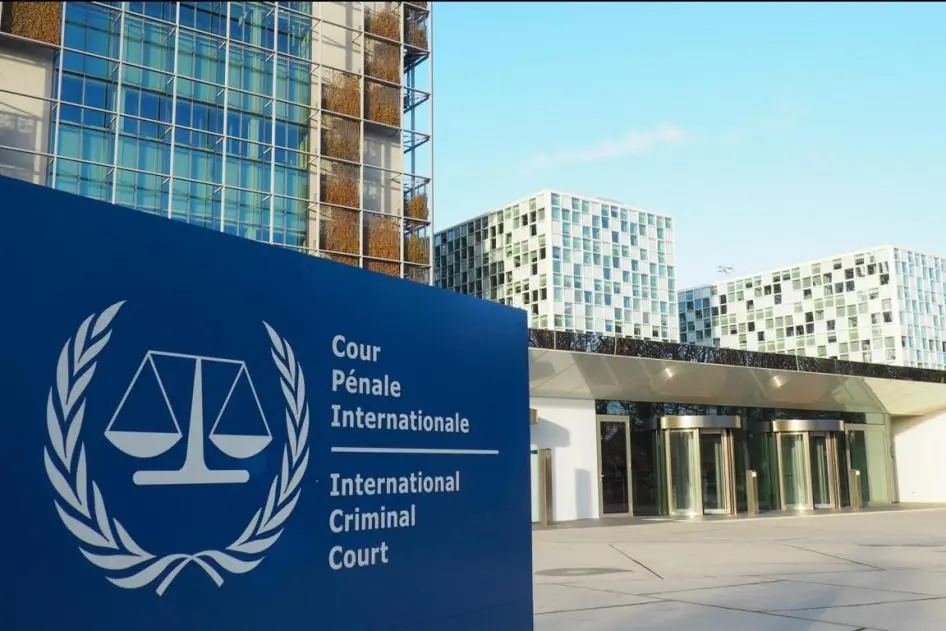The Vienna talks are planned to resume on 29 November following months of delays.
Iran’s top nuclear negotiator said there will be no negotiations on the nuclear accord itself at the Vienna talks later this month, stressing only US sanctions should be discussed.
“We do not have nuclear talks, because the nuclear issue was resolved in 2015 in the form of an agreement reached between Iran and the P5+1,” Ali Bagheri-Kani, Iranian deputy foreign minister for political affairs, told Islamic Republic of Iran Broadcasting (IRIB) News Agency in an interview on Wednesday.
Tehran is insisting the United States lifts harsh sanctions and guarantees that it will abide by the agreement if negotiations designed to revive the deal end with positive results.
Iranian officials have consistently echoed the country’s stance to not reverse nor allow world powers to violate the agreement once again, referring the Washington’s withdrawal from the deal in 2018.
On Tuesday, Bagheri-Kani arrived in the French capital on the first leg of his European tour, where he met his French counterpart to discuss issues related to the Joint Comprehensive Plan of Action (JCPOA).
“As you know, France is chairing the European Union at the beginning of the new year and in the first six months of 2022, and of course it can play a transnational role,” the Iranian diplomat said.
“In this regard, I think it is a very good opportunity to improve the relations between the Islamic Republic of Iran and France, as well as France’s role in regional interactions, as well as in the course of the talks that we will have with the P4+1 in Vienna on November 29.”
Bagheri-Kani described his talks with Philippe Errera, the political director of the French foreign ministry and lead negotiator as “detailed, frank, serious, constructive and forward-looking,” and noted there was a “very good opportunity” to strengthen relations with France as it prepares to hold the European Union’s Council presidency from January of next year.
Iran demands assurance US will not abandon nuclear deal again
Earlier this week, Iran’s Foreign Ministry Spokesman Saeed Khatibzadeh told a virtual news conference that “the US should show that it has the capability and will to provide guarantees that it will not abandon the deal again if the talks to revive the deal succeed”.
Read also: Iran demands assurance US will not abandon nuclear deal again
The comments were made just weeks ahead of the planned resumption of talks in Vienna on 29 November following months of delays and questioning of intentions.
However, the resumption of talks were seen as part of US President Joe Biden’s efforts to reverse foreign policies of former President Donald Trump, who withdrew Washington from the Joint Comprehensive Plan of Action [JCPOA] to apply “maximum pressure” on Iran.
Khatibzadeh warned that if Washington is not willing to lift its sanctions, Tehran will not reverse its “compensatory measures”, stressing that the Islamic Republic will not accept a partial return to the deal. “Either we agree on everything or we agree on nothing.”
Although the United States and its European allies – France, Britain and Germany – considered Iran’s stance unrealistic, the latter insists on a full lifting of sanctions to reach an agreement regarding the deal.
On Monday, French Foreign Minister Jean-Yves Le Drian said June’s talks should resume where they left off without any new demands by Iran.
The Iranian negotiator responded saying “we do not have nuclear talks, because the nuclear issue was fully agreed in 2015 in the form of an agreement reached between Iran and the P5+1.”
He added that “the main issue we are facing now is the consequences of the US withdrawal from the JCPOA, which are limited to the illegal sanctions imposed on the Islamic Republic of Iran.”
Amir-Abdollahian also refuted on Saturday the west’s questioning of Tehran’s intentions to return to talks.
Bagheri-Kani headed to Berlin after his Paris trip and is scheduled to visit London and Madrid in the coming days.
Ahead of his tour, he noted that a range of topics are on his agenda to discuss with the European signatories to the Iran nuclear deal.
“Following recent consultations w/ foreign colleagues, will meet several European counterparts in upcoming days. Exchanges on bilateral & regional issues AWA future talks are on the agenda. We shall spare no effort in advancing our national interests incl removal of illegal sanctions,” he said on Twitter.
Following recent consultations w/ foreign colleagues,will meet several European counterparts in upcoming days.Exchanges on bilateral & regional issues AWA future talks are on the agenda.We shall spare no effort in advancing our national interests incl removal of illegal sanctions https://t.co/gz3DU46Fcy
— علی باقریکنی (@Bagheri_Kani) November 8, 2021
Meanwhile, Iranian Foreign Minister Hossein Amir Abdollahian held talks with his counterparts in the P4+1 countries.
“He spoke with the foreign ministers of France, Germany, the UK, China, and Russia. In all these conversations, the JCPOA was the main focus,” Iranian news Tehran Times reported.
In talks with the French FM, Amir Abdollahian held the US accountable for the JCPOA dilemma, recalling the impact of some European states’ silence in allowing Washington to impose harsh demands on Tehran.
“Iran wants a good agreement, but it has requirements, including the other sides fully complying with their commitments and the effective lifting of sanctions,” he noted.
He added that the US’ recent sanctions against Iran is another indicator that keeps Tehran from trusting Washington.
Amir Abdollahian reiterated his country’s demands for the US to guarantee that it will not abandon the 2015 nuclear accord again if negotiations designed to revive the deal end with positive results, according to the Iranian foreign ministry.
Meanwhile, the French foreign minister said Paris encourages all sides to rejoin the JCPOA, adding he will exert efforts to achieve this goal while remaining positive that the forthcoming Vienna talks will witness progress.
The Iranian and German foreign ministers also held talks recently to discuss the much-anticipated Vienna negotiations.
“The US withdrawal [from the nuclear deal] and the failure of the three European countries to fulfill their obligations have increasingly deepened mistrust. Therefore, full removal of sanctions is a necessity,” Amir Abdollahian said.
The FM also warned the European countries against issuing any statements that could potentially ignite tensions.
“On the path to the talks and in media terms, using a language of force and threats is not helpful and the Islamic Republic of Iran will not give in to unfounded propaganda. Any inaccurate comment, which does not comply with the facts, can jeopardize ongoing efforts,” he stated.
On Wednesday, Germany called on all sides to join efforts in reviving the 2015 nuclear accord, while urging Iran to have a “constructive stance” during negotiations.
The deputy spokeswoman for the German Foreign Ministry Andrea Sasse said her country welcomes Iran’s return to the Vienna talks.
The German foreign minister said his country is willing to exert efforts into ensuring the US returns to the nuclear deal, and also to facilitate the talks to reach positive results.
Sanctions amid agreements
Meanwhile, Amir Abdollahian held a phone call with his Chinese counterpart Wang Yi, where he told him that Washington can not keep imposing futile sanctions and policies while claiming it wants to reach an agreement.
The Chinese foreign minister welcomed the resumption of talks and condemned the US for abstracting the nuclear agreement. Wang hoped Washington will lift sanctions on Iran to compensate for the years-long hiatus.
In a tweet on Tuesday, Mikhail Ulyanov, Russia’s envoy to the International Atomic Energy Agency (IAEA) said the negotiations “must be a successful exercise” as there was “no acceptable alternative” to the JCPOA.
While world powers are scrambling to push for the revival of the nuclear deal, Iran said restoring the JCPOA is not a top priority.
“The JCPOA isn’t a priority for our country, and we will not waste all our capacities waiting for the outcome of the [Vienna] talks,” said Fada-Hossein Maleki, a member of the parliamentary National Security and Foreign Policy Committee, on Wednesday.
Maleki noted that a guarantee by all sides is a prerequisite to go forward with negotiations.
“The talks must bear practical and tangible results for us. The Islamic Republic will no longer put all its eggs in the JCPOA basket as it was done during the Rouhani administration [which left office in August]…We will not allow the talks to become attritional.”







